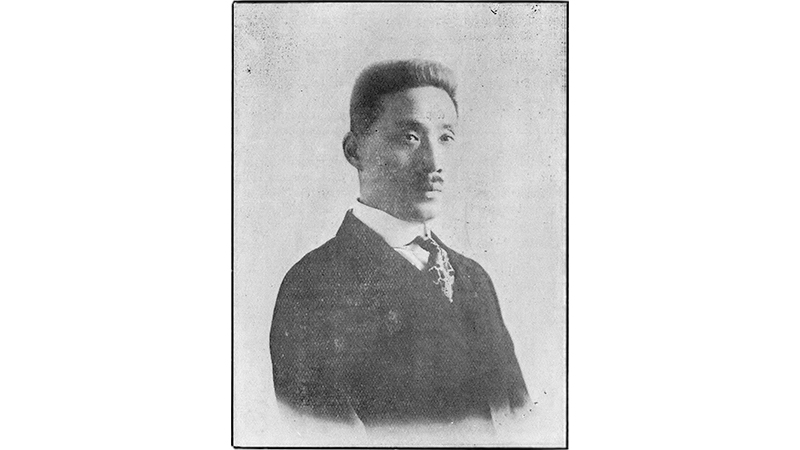

Zhang Boling was born on May 4, 1876 in Tianjin. He life was marked with a deep love for Christ, for China and for education. His patriotism was manifested when Zhang enrolled in the Beiyang Naval Academy in 1891. However, the crushing defeat of the Chinese Navy by Japan in the 1894-95 war caused Zhang to re-orient the focus of his patriotism from the military to education. In 1898, Zhang began a lifelong association with one of China’s leading educators, Yan Xiu, and six years later they founded China’s first modern private school in Tianjin. After touring schools in both Japan and the United States, Zhang decided to develop Nankai Middle School by following the American model, in which Christian values, science, and athletics all played important roles.
In the same year that Zhang met Yan Xiu, China’s reform movement suffered a setback when the Empress Dowager seized power from young Guangxu Emperor. Her xenophobic policies culminated in the Boxer Uprising and the death of over 30,000 Chinese Christians in 1900. However, the next two decades saw a new openness to the gospel in China. Zhang Boling was baptized in his 30s in 1909. He applied his patriotic zeal to the church and in 1911 became a founding member of one of China’s first self-supporting, non-denominational churches. He also became a board member of the Tianjin YMCA, and later its president, roles which reflected his commitment to breaking down the Confucian taboo against physical activity for scholars.
In 1919, the year that China was wracked by student protests in the May 4 Movement, Zhang founded Nankai University. One of Nankai’s students was Zhou Enlai, a graduate of Nankai Middle School and later China’s premier. Zhou always held Zhang in high regard. How differently China’s history might have developed had Zhou followed Zhang’s lead in accepting Christ.
When Japan invaded China in 1937, Zhang suffered a great personal loss as his youngest son died while flying for the Chinese Air Force. Zhang’s outspoken patriotism led to the targeting of the Nankai University campus by Japanese bombers. Zhang was forced to move the university to Yunnan Province, where it became part of a national cooperative university. He moved the middle school to Sichuan Province and spent most of the war years there in government service in the wartime capital, Chongqing. Zhang returned to Tianjin in September 1950 and died there of illness at age 74 on February 23, 1951 just as the storm was breaking over the church in China. He was survived by his wife, three sons and their families.
Zhang wrote that the two greatest influences in his life were his faith in Jesus Christ and his wife. Although Nankai Middle School was not registered as a Christian school, Zhang’s faith was on display in many ways, including his weekly lectures to the students, which were described as sermon-like and moralistic. He read the Bible an hour each day, and he sponsored Bible translation and distribution ministries. His life is a powerful reminder that the gospel is a product of neither East nor West, that love of country and love of Jesus Christ need not be in conflict, and that it is important to see Jesus Christ proclaimed as Lord not only in church buildings but on the campuses and in every aspect of life.
When there is no one to help you, God is still there to help you.
Zhang Boling Xiansheng Zhuan Sun Chanmin, (Taiwan Zhonghua Shuju Yinhang, 1971), p. 13.